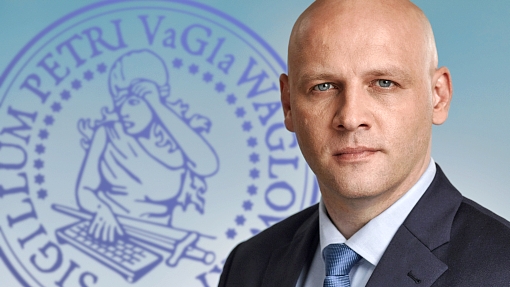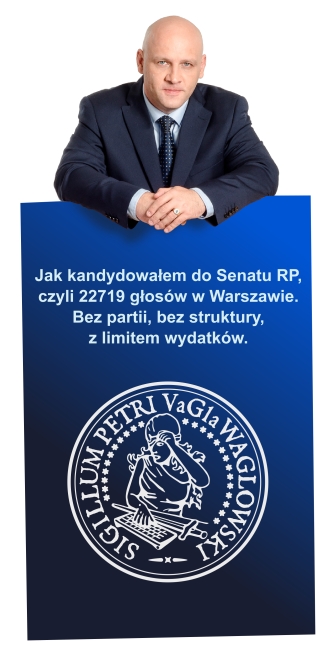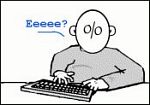Trzy ostrzeżenia i odcinanie od Sieci w ugodzie wydawców z dostawcą usług internetowych
 W Irlandii pojawi się wyrok potwierdzający zawartą w zeszłym roku ugodę. W wyroku znajdują się rozważania dotyczące ochrony praw autorskich, a konkretnie możliwości domagania się od przedsiębiorstwa telekomunikacyjnego, by odcięło abonentów od usług. Chodzi o wyrok w sprawie EMI Records & Ors v. Eircom Ltd. Ugoda została zawarta w zeszłym roku, a związana była z możliwością domagania się od dostawcy usług internetowych, by uniemożliwił swoim abonentom korzystania m.in. z serwisu The Pirate Bay. Oceniając ugodę sąd doszedł do wniosku, że dostawca usług może wprowadzić w ramach swojego regulaminu takie postanowienia, które pozwolą mu - na gruncie prawa kontraktów - na odcinanie abonentów od świadczonej usługi w przypadku naruszenia prawa (co przez sąd zostało opisane słowami "stealing of copyright-protected sound and video recordings over the internet, mainly by peer-to-peer sharing groups"). W ten sposób problem filtrowania i "trzech ostrzeżeń" pojawić się może w zupełnie innej perspektywie.
W Irlandii pojawi się wyrok potwierdzający zawartą w zeszłym roku ugodę. W wyroku znajdują się rozważania dotyczące ochrony praw autorskich, a konkretnie możliwości domagania się od przedsiębiorstwa telekomunikacyjnego, by odcięło abonentów od usług. Chodzi o wyrok w sprawie EMI Records & Ors v. Eircom Ltd. Ugoda została zawarta w zeszłym roku, a związana była z możliwością domagania się od dostawcy usług internetowych, by uniemożliwił swoim abonentom korzystania m.in. z serwisu The Pirate Bay. Oceniając ugodę sąd doszedł do wniosku, że dostawca usług może wprowadzić w ramach swojego regulaminu takie postanowienia, które pozwolą mu - na gruncie prawa kontraktów - na odcinanie abonentów od świadczonej usługi w przypadku naruszenia prawa (co przez sąd zostało opisane słowami "stealing of copyright-protected sound and video recordings over the internet, mainly by peer-to-peer sharing groups"). W ten sposób problem filtrowania i "trzech ostrzeżeń" pojawić się może w zupełnie innej perspektywie.
Sąd zatwierdził ugodę, w której po jednej stronie występują: EMI Records, Sony, Universal oraz Warner, a po drugiej spółka Eircom - spółka obsługująca 40% abonentów w Irlandii. Jak wspomniałem - sprawa, o którą chodzi, ma związek z aktywnością serwisu The Pirate Bay. Wcześniejsze doniesienia na ten temat można znaleźć m.in. w serwisie TorrentFreak, z września zeszłego roku, np. w tekście Eircom Pirate Bay Blockade Takes Effect. Obok działań wymierzonych bezpośrednio w serwis TPB (por. Przegląd wydarzeń - proces TPB, ugoda Google Book, pytania prejudycjalne o internetowy clipping..., Po częściowym, sądowym odcięciu od Sieci the Pirate Bay nadal dostępny, albo Szwedzki wyrok w sprawie TPB: rok pozbawienia wolności i 905 tys dolarów dla każdego) wydawcy muzyki i filmów podjęli równoległe działania związane z możliwością blokowania dostępu do tego serwisu przez dostawców usług internetowych w różnych krajach na świecie.
Dzień po opublikowaniu w IirishTimes.com tekstu na temat prób uzyskania informacji publicznej, związanej z prowadzonymi przez irlandzki rząd konsultacjami na temat filtrowania treści (por. Filtrowanie w Irlandii: czego się można dowiedzieć z odmowy udzielenia informacji publicznej), pojawił się tam również artykuł Web users to be cut off over illicit file-sharing. Tekst ten omawia wyrok w sprawie EMI Records & Ors v. Eircom Ltd z dnia 16 kwietnia 2010, sygn. 2008 1601 P ([2010] IEHC 108). Jest to wyrok zatwierdzający ugodę między stronami sporu ("The parties can therefore lawfully proceed to implement the settlement").
W sporze, który zakończyła ugoda, chodziło o korzystanie z infrastruktury spółki Eircom Ltd przez osoby, które pobierają z internetu chronione prawem autorskim utwory (downloading), głównie za pośrednictwem P2P. Ugoda została przynajmniej w części wykonana przez Eircom już pierwszego września 2009 roku. Jedno z przedsiębiorstw telekomunikacyjnych o największej liczbie abonentów w Irlandii, odcięło Irlandczykom dostęp do adresu IP serwisu The Pirate Bay. To tylko jedna ze spraw, które wówczas rozpoczęto. O ile spółka Eircom postanowiła się dogadać z wydawnictwami, to UPC oraz BT Ireland zdecydowały się na to, by odmówić spełnienia żądań wydawców. Być może sądowe potwierdzenie ugody z Eircom wpłynie teraz na ich kolejne decyzje. Tym bardziej, że Eircom podnosił w trakcie negocjacji, iż to nieuczciwe, by tylko ta spółka była zobowiązana do wprowadzenia postanowień ugody. Wydawcy zobowiązali się, że podejmą działania prawne przeciwko innym dostawcom usług w Irlandii, by również oni byli zobowiązani do stosowana rozwiązań chroniących prawa autorskie.
Sędzia wydając wyrok nawiązał m.in. do kompozycji Sibelius i Strawińskiego, by na ich przykładzie pokazać ewolucję prawa autorskiego oraz jego zasięgu międzynarodowego. Sąd dostrzegł, że internet może być wykorzystywany zarówno w dobry, jak i w zły sposób ("internet has a positive and dark side"). Wskazując dobre strony rozwoju internetu sąd dostrzegł możliwości w zakresie edukacji, dostęp do wiedzy, zwiększenie partycypacji w życiu publicznym, itp. (złe strony to m.in pornografia, itp). Sąd stwierdził również, że pojawienie się internetu niewiele zmienia, jeśli chodzi o podstawowe zasady, którymi rządzą się systemy prawne poszczególnych państw. Aktywność w Sieci również jest objęta prawem, a internet nie jest sferą wyjętą spod regulacji.
Co jest w ugodzie? Sąd referuje te postanowienia słowami:
(...)
9. Because this process takes place over the internet in generally unencoded form, software has been developed to detect illegal downloaders. One such is DetectNet. This is the current technology market leader, or one of them, but if encoding of illegal sharing of copyright material increases, it is now in its infancy, technology for detection will have to forge ahead also. Companies operating this or similar services are hired by the plaintiffs. Under the terms of the settlement, these companies tell the plaintiffs that a particular computer has been involved in illegal file sharing of its copyright material. This information is passed by one of the plaintiffs to the defendant Eircom, as the internet service provider. It then informs its subscribers that they have been detected infringing copyright. If there is a second occasion of illegal downloading, Eircom is obliged, when so informed, under the settlement to write to the subscriber warning them that unless that sort of infringement ceases, they will be disconnected from general internet service. This disconnection does not apply to any telephone or television service that a subscriber gets over their internet facility. On a third infringement, that discontinuance is implemented by Eircom: the subscriber is taken off service except for phone or television internet access. This is a serious sanction. Some would argue that it is an imposition on human freedom. There is no freedom, however, to break the law. Further, while it is convenient to have internet access at home, most people in Ireland have only to walk down to their local town centre to gain access for around €1.50 an hour. The parties also agreed, under the settlement, to negotiate a protocol setting out the details of the precise procedure for implementing this settlement.
(...)
11. The settlement was always going to be difficult to implement precisely. The parties agreed, as part of it, to negotiate a protocol governing their respective sides of the bargain. I wish to refer to the main points. There has to be an education and awareness campaign by the Eircom directed at its internet customers about the abuse of peer-to-peer software, securing broadband installation in the home and how signs of copyright infringement might be detected by the main householder. A lot of this seems predicated as likely to happen at teenager or slightly older level. The implementation of the settlement was to be phased in by a three month pilot programme; because this was the only way the parties could see how things were working and to analyse how practical their measures might be proved to be. There were to be exceptions to the ultimate sanction. Some people might be depending on their broadband internet access for medical services and others for their livelihood. Where an infringement took place within a business, but contrary to the internet use policy within the organisation, communication by way of admonition might replace the ultimate measure of shutdown. Other categories of exception might grow over time. In terms of privacy, there are two provisions which are relevant to the data protection legislation to which I shall shortly turn. Under para. 2.10 of the protocol, where an exception to shut down after a third infringement occurs in the manner provided for, Eircom will only communicate with the relevant plaintiff to the effect that “this IP address does not fall with the terms of the protocol”. Under para. 2.3, notification by one of the plaintiffs to the defendant that there has been an illegal downloading of their copyright material consists of details of the copyright holder (which could be, for example, a particular songwriter); that a breach of copyright has occurred; details of the relevant album or song or video; the IP address that has been detected in infringing copyright; and other details that show proper investigation, namely, the relevant software used and the digital fingerprint of the copyright material used.12. Then one moves on to the three infringement levels under the protocol. Nothing in these provisions changes one basic fact. Neither DetectNet, or any similar service of detection, nor any of the plaintiffs whose copyright material is being infringed would ever know through this process that the infringer is a particular person living in a particular place in Ireland. What they do know is that a particular IP address has been involved in the downloading. An IP address is the number given to a computer from an internet service provider when it receives internet access. The IP number electronically identifies the user of the internet. Banks of numbers for IP addresses are produced by an international organisation and these, in turn, are provided to internet service providers. One can find out by looking at the IP number, I understand, who the internet service provider is. What internet service provider is given what bank of thousands or millions of IP numbers is not kept a secret anywhere. Since each internet service provider will have, in turn, many thousands of customers, one is not moving much closer to finding out the identity of an internet abuser by knowing the copyright infringing IP address was assigned to that company. That number will probably give you no more than an indication of the domicile of the computer. Further, I am convinced, on the basis of the affidavit evidence before me, that the plaintiffs have no interest at all in using this process to find out who the copyright infringers are. Rather, what they are interested in having the protocol work so that the plague of copyright infringement may be undermined.
13. On the first infringement, the bill payer at the IP address will be told with their bill that an infringement was detected at such and such a time in respect of a particular song, or whatever, that is subject to copyright. This enables them to reflect on their conduct or to communicate with the rest of their household. On a second infringement, a formal letter is received by the customer from Eircom. This is to the same effect, but it will presumably be couched in stronger terms than the warning with the bill. The customer can only go to level 2 after fourteen days have passed since the first infringement. As I understand it, these communications may also contain information concerning how to keep one’s computer secure from, for instance, the person next door and other continuing education tips. When a third infringement notification is received by Eircom from one of the plaintiffs, after a further fourteen days, Eircom must then review all the evidence. This is done on a human basis; the first two levels operating automatically. A termination notice is then issued to the customer giving fourteen days before cut-off. The customer is then entitled to make representations to Eircom, as the internet service provider, over the telephone or through the internet. The user’s representation is considered by Eircom, not in consultation with the plaintiffs, under para. 2.8 of the protocol. Private matters involving extenuating circumstances, so as to call into play one of the exceptions, or material whereby it is claimed as a matter of fact that the infringement has not taken place at all, must be considered by Eircom. Then, if that does not cause the consequences of the protocol to be diverted or postponed, the customer is cut-off from internet service.
(...)
W wyroku pojawia się nawiązanie do ustawy o ochronie danych osobowych (the Data Protection Acts 1988 and 2003) oraz informacja, że jedna ze stron zainteresowała sporem Inspektora Ochrony Danych (the Data Protection Commissioner). Regulatorzy ochrony danych osobowych są coraz częściej angażowani w tego typu spory. Nie zawsze musi chodzić o prawo autorskie. W Polsce Generalny Inspektor Ochrony Danych Osobowych zaangażowany był w spór dotyczacy ujawnienia informacji na temat osób, które potencjalnie dopuściły się naruszenia dobrego imienia i czci (por. Dyskusja o numerach IP jako danych osobowych (wyrok WSA w Warszawie)). Nie można zapominać jednak, że twórczość artystyczna, obok czci i dobrego imienia, również należy do katalogu dóbr osobistych człowieka. W kazdym razie problem, jaki pojawił się na gruncie irlandziej sprawy, dotyczył procedury udostępniania informacji o abonentach w celu skutecznego dochodzenia praw przed sądem przez pokrzywdzonego. W Polsce - jak stwierdził Wojewódzki Sąd Administracyjny w Warszawie - zamiar dochodzenia swoich praw przed sądem poprzez wniesienie powództwa o naruszenie dóbr osobistych "jest wystarczającym uzasadnieniem udostępnienia danych osobowych, wykluczającym zarazem ewentualny zarzut naruszenia tajemnicy telekomunikacyjnej".
Jeśli chodzi o irlandzką ugodę, Inspektor Ochrony Danych miał pewne wątpliwości dot. pewnych postanowień ugody, które musiał rozstrzygnąć sąd.
Wydaje się, że jednym z jej najważniejszych elementów jest zgoda Eircom na wprowadzenie mechanizmów uniemożliwiających "nielegalne" pobieranie plików (obok ujawniania danych osobowych abonentów, którzy tego typu aktywnośc podejmują) oraz odcinanie od usług takich osób. Sędzia oceniający ugodę stwierdził m.in. (wytłuszczenie moje):
(...)
30. Even if only s. 2(a)(1)(b) of the Data Protection Act was operative, it is legitimate for Eircom to have a corporate policy whereby the facilities that it hires out to the people of Ireland are used for lawful purposes only. Having that policy, they are entitled to pursue it by means of conditions in contract that incorporate an enforcement modality. The protocol is merely a more complex means to that end. I find it impossible to imagine that such interference is unwarranted because there is some fundamental right or freedom or legitimate interest in the date subject whereby, in contrast to those who engage in other forms of unlawful copyright theft which may leave them more readily subject to the law, the internet is used for the violation. There cannot be a right to infringe the constitutional rights of others, absent some argument as to a genuine and compelling competing right. In some instances, the purpose for which a right is asserted undermines its character as a right. There could not be, for instance, a constitutional right to privacy that extended to the organisation of a violent crime over the internet or by telephone. There is nothing disproportionate, and it is therefore not unwarranted, about cutting off internet access because of three infringements of copyright. The exceptions in the protocol, to which I have already referred in detail, provide for upholding relevant rights to medical care, to livelihood and to business use in appropriate circumstances. The protocol, at the relevant stage, is not inhumane or arbitrary. Rather, there is a right to make representations and these will, I am assured and I believe, be listened to if sensible and credible.
(...)
Sędzia odniósł się również do prawa Unii Europejskiej, a zrobił to w następujący sposób:
(...)
31. These are adequate procedural safeguards in the protocol and there is conformity, in addition, in my view, with article 1(b) of Directive 2009/140/EC, the framework Directive of the European Parliament and Council on a common regulatory framework for electronic communications networks and services of 25th November, 2009. At the moment there is no instrument making this effective in Irish law, but I have been referred to it as a matter of caution.32. Lastly, I note the many Directives in European Law on the harmonisation of aspects of copyright and related rights. The Copyright and Related Rights Act 2000, as amended by the Copyright and Related Rights (Amendment) Act 2007 is a domestic Act, but it must be interpreted in accordance with Ireland’s obligations under European law. In part, some terms are derived from our European Union obligations. The relevant European law Directives were implemented piecemeal over many years and later Directives, at times, repeat the text of earlier ones. Two sections of Directive 2001/29/EC of the European Parliament and of the Council of 22nd May 2001 on the harmonisation of certain aspects of copyright and related rights in the information society are important. Firstly, recital 59 records:-
“In the digital environment, in particular, the services of intermediaries may increasingly be used by third parties for infringing activities. In many case such intermediaries are best placed to bring such infringing activities to an end. Therefore, without prejudice to any other sanctions and remedies available, rightholders should have the possibility of applying for an injunction against an intermediary who carries a third parties’ infringement of a protected work or other subject matter in a network. This possibility should be available even where the acts carried out by the intermediary are exempted under Article 5. The conditions and modalities relating to such injunctions should be left to the national law of the Member States.”
33. And then there is Article 8.3 of the Directive:-
“Member States shall ensure that rightholders are in a position to apply for an injunction against intermediaries whose services are used by a third party to infringe a copyright or related right”.
(...)
O ile w tej ugodzie ustalono, że Eircom nie ponosi odpowiedzialności za naruszenie praw autorskich, to wcale nie jest powiedziane, że dostawca usług zawsze takiej odpowiedzialności nie będzie ponosił.
- Login to post comments
Piotr VaGla Waglowski

Piotr VaGla Waglowski - prawnik, publicysta i webmaster, autor serwisu VaGla.pl Prawo i Internet. Ukończył Aplikację Legislacyjną prowadzoną przez Rządowe Centrum Legislacji. Radca ministra w Departamencie Oceny Ryzyka Regulacyjnego a następnie w Departamencie Doskonalenia Regulacji Gospodarczych Ministerstwa Rozwoju. Felietonista miesięcznika "IT w Administracji" (wcześniej również felietonista miesięcznika "Gazeta Bankowa" i tygodnika "Wprost"). Uczestniczył w pracach Obywatelskiego Forum Legislacji, działającego przy Fundacji im. Stefana Batorego w ramach programu Odpowiedzialne Państwo. W 1995 założył pierwszą w internecie listę dyskusyjną na temat prawa w języku polskim, Członek Założyciel Internet Society Poland, pełnił funkcję Członka Zarządu ISOC Polska i Członka Rady Polskiej Izby Informatyki i Telekomunikacji. Był również członkiem Rady ds Cyfryzacji przy Ministrze Cyfryzacji i członkiem Rady Informatyzacji przy MSWiA, członkiem Zespołu ds. otwartych danych i zasobów przy Komitecie Rady Ministrów do spraw Cyfryzacji oraz Doradcą społecznym Prezesa Urzędu Komunikacji Elektronicznej ds. funkcjonowania rynku mediów w szczególności w zakresie neutralności sieci. W latach 2009-2014 Zastępca Przewodniczącego Rady Fundacji Nowoczesna Polska, w tym czasie był również Członkiem Rady Programowej Fundacji Panoptykon. Więcej >>








Wiarygodność danych pobierającego
Ten fragment wydaje mi się interesujący i dosyć istotny z punktu widzenia odcinanych osób.
Jak czytam rozpoznanie, czy dana osoba udostępnia pliki bez zgody właściciela autorskich praw majątkowych odbywa się w oparciu o firmę trzecią. Ważne by podkreślić, że nie mówi się tu o oprogramowaniu firmy trzeciej, a o niej samej. Nie wiem jak to może wyglądać inaczej niż poprzez umożliwienie monitorowania sieci teleinformatycznej ISP przez zewnętrzną firmę.
Teraz 3 pytania.
1) Czy ISP będzie miał możliwość wglądu w kod monitorującego oprogramowania? Jeżeli nie jaką wiarygodność w zakresie ochrony danych będzie miał taki ISP. Jaka będzie kontrola nad takim monitorowaniem? Poszukiwanie pakietów z treścią chronioną musi się odbyć przez jego jakąś heurystykę. Byłoby dobrze wiedzieć, co z takiej heurystyki program taki może wyciągnąć
2) Gdzie i jak długo przechowywane będą dane o adresie IP zidentyfikowanego komputera
3) Jak będzie ktoś mógł udowodnić, że w danym pakiecie pole z IP źródła zostało podmienione?
I dodatkowe pytanie o przypadki naruszenia w wyniku ataku hakerskiego
Co w sytuacji kiedy do naruszenia prawa autorskiego doszło w wyniku wykorzystania luki w systemie zabezpieczeń np. systemu operacyjnego, do którego został wprowadzony wirus, przekształcając go w zombie? Załóżmy, że użytkownik posiadał najnowsze aktualizacje systemu, używał antywirusa oraz firewalla. Producenci oprogramowania stosują klauzule wyłączenia odpowiedzialności za błędy programu. Teraz mamy sytuację, w której użytkownik zrobił wszystko, co możliwe by zabezpieczyć swój system. Jego nielegalne wykorzystanie wynikło z powodu błędu producenta systemu. Użytkownik jest odcięty. Czy w takiej sytuacji posypią się pozwy o uchylenie tych klauzul wyłączenia odpowiedzialności? Skoro można pozywać ISP za wykorzystanie infrastruktury, to czy nie można pozwać producenta za lukę, która umożliwi to samo?
Tymczasem w
Tymczasem w Niemczech...
http://osnews.pl/rapidshare-nie-odpowiada-za-lamanie-prawa-przez-uzytkownikow/